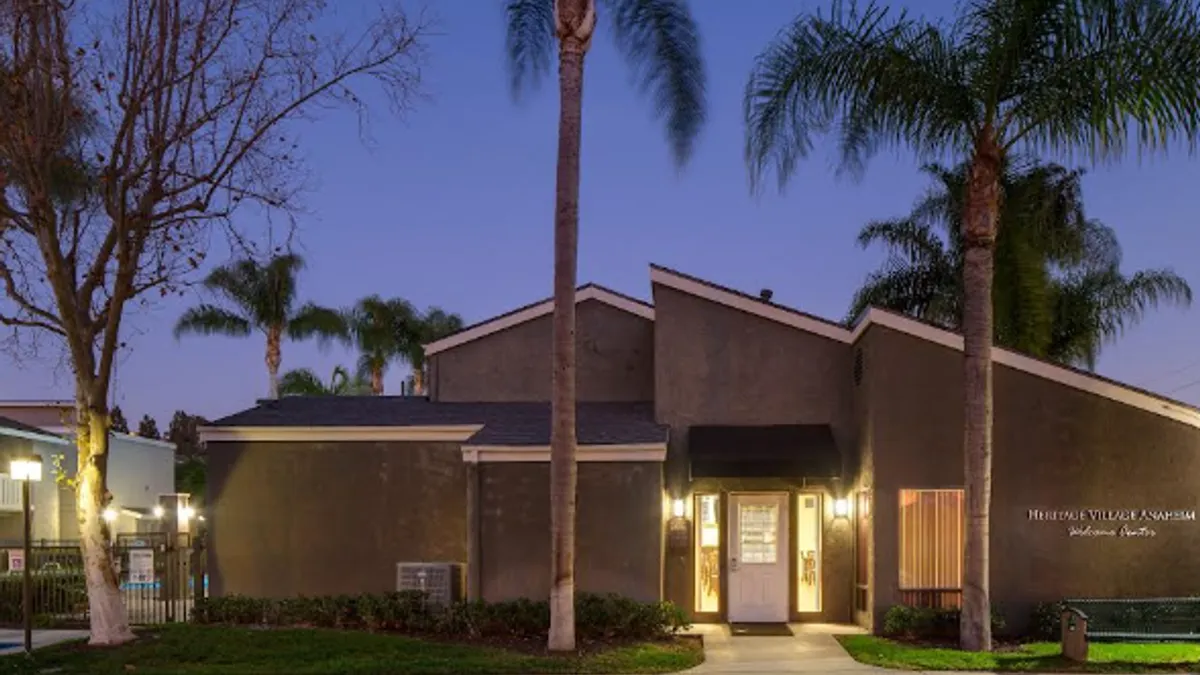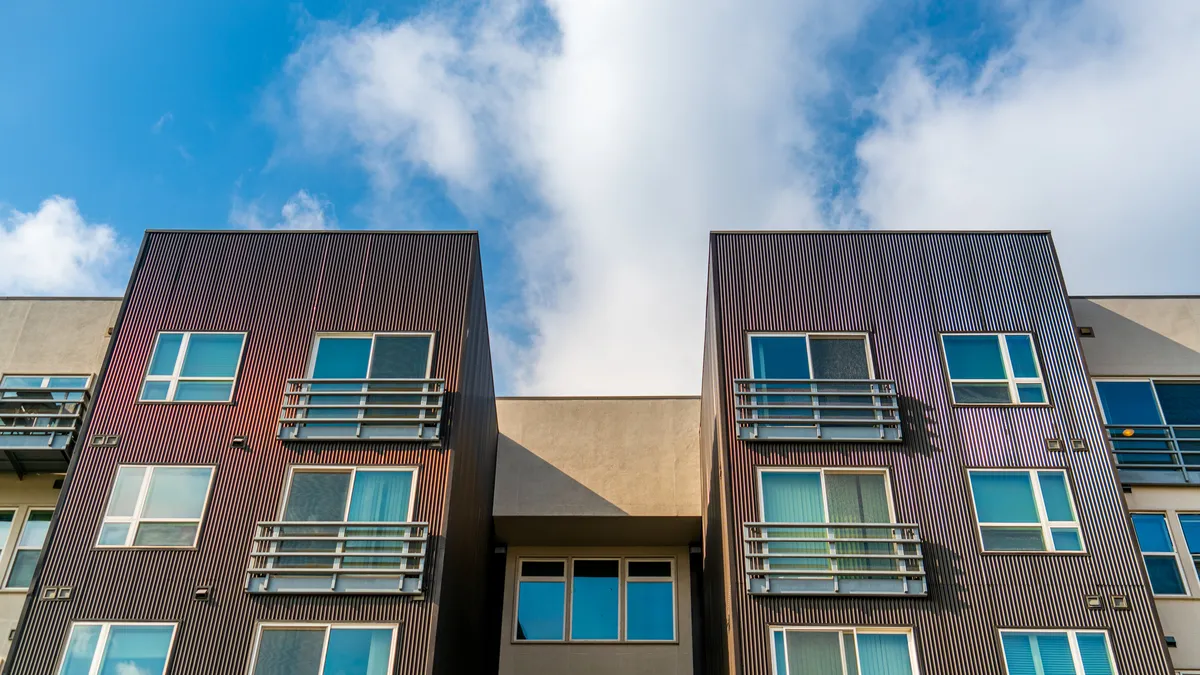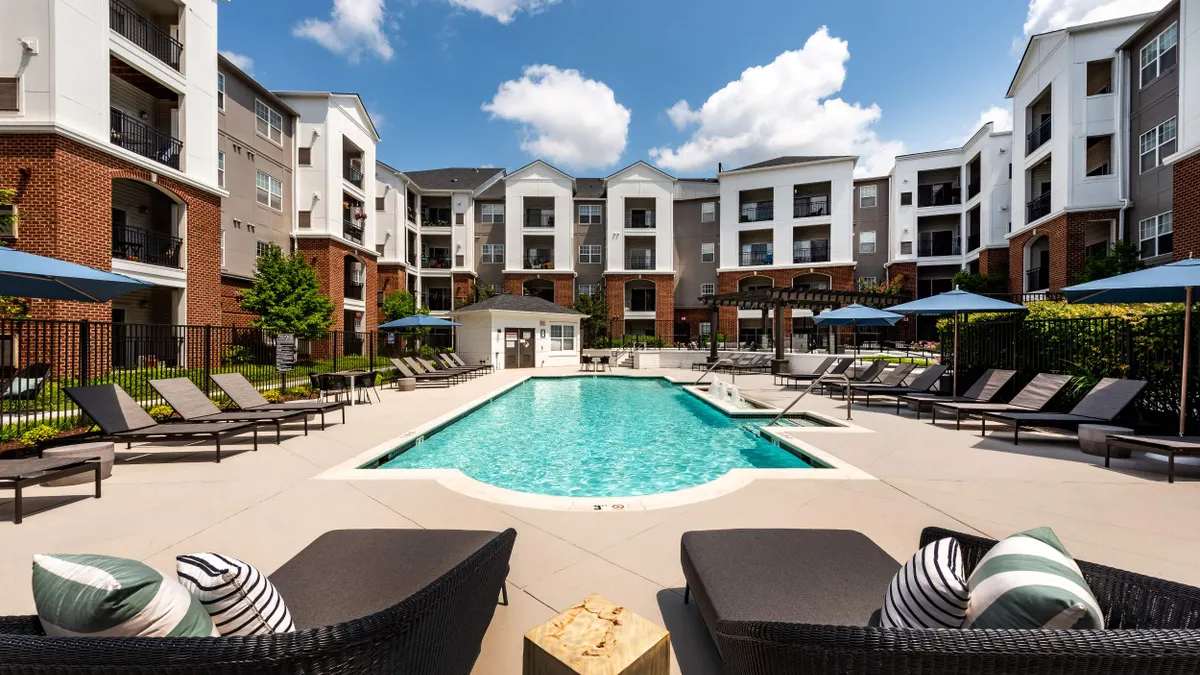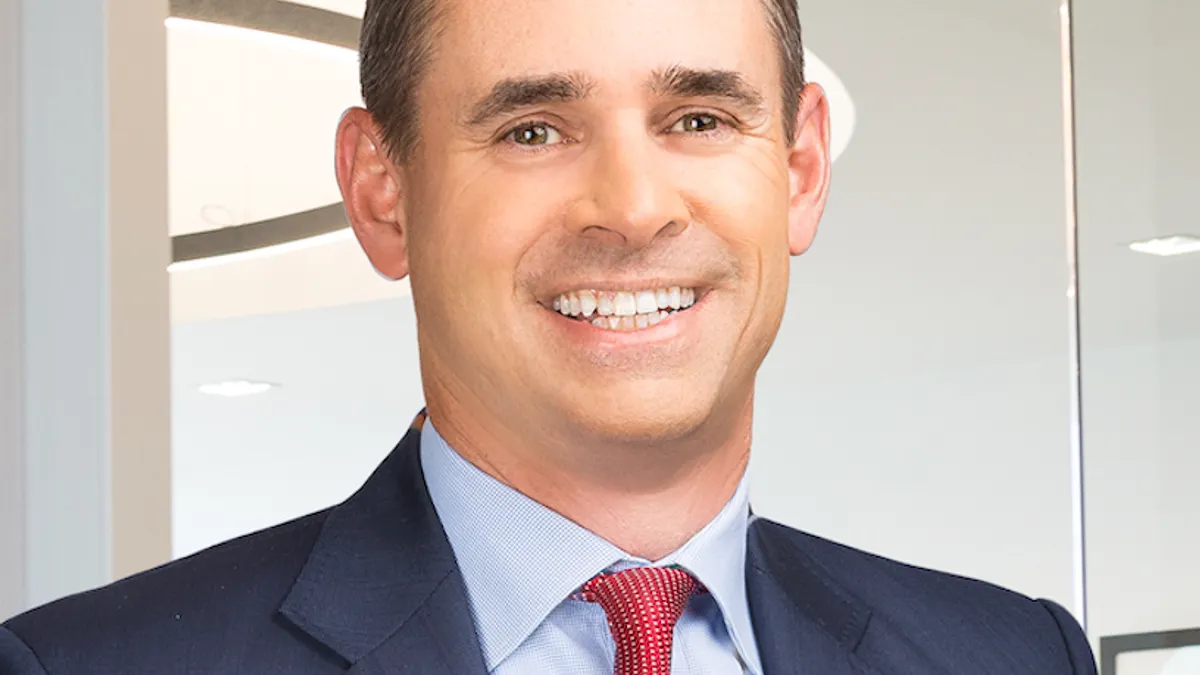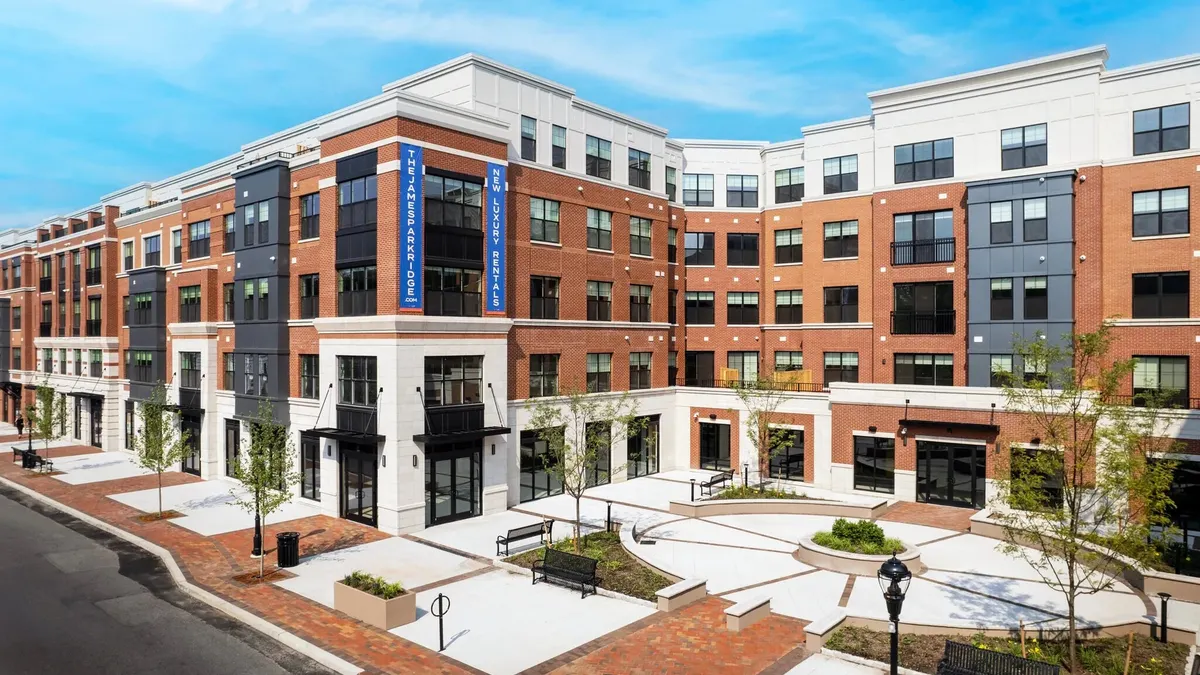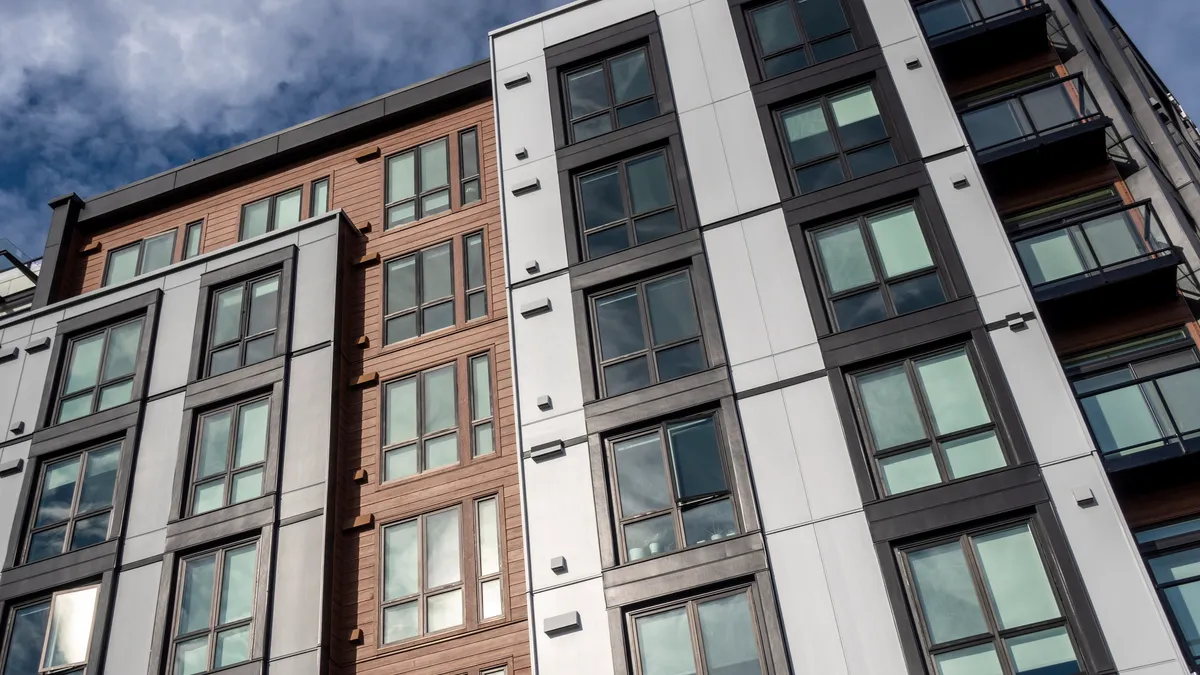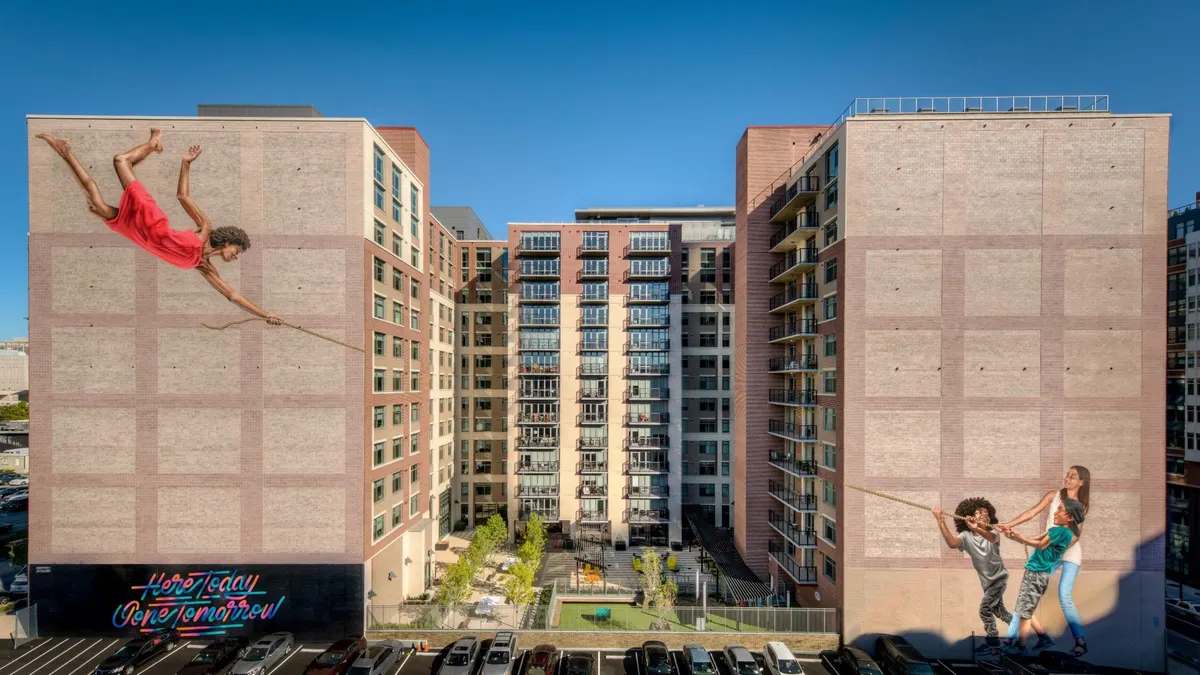It’s not uncommon for multifamily executives to lay out ambitious growth goals.
You can count Jeff Jaeger among that group. The Standard Communities principal and co-founder plans to grow his portfolio from roughly 15,000 units today to 50,000 units by 2050. In the next two months, the Los Angeles-based company should move closer to that goal with a yet-to-be-announced roughly 2,000-unit deal closing soon and more apartments coming into the fold by the end of the year — taking the firm to roughly 20,000.
For companies that own affordable and moderately priced market-rate housing, growth can be a complicated matter, however. To buy and build properties, these companies need to cobble together debt and equity funding from private and often public sources. Still, Jaeger told Multifamily Dive that he’s well on the way to hitting his goal.
“We will have acquired about 40 new communities by the end of the year, which brings us to about 20,000 units,” Jaeger said. “We’re right on track to where we need to be to hit that 50,000 number. We've hit our target numbers each year for the last three to four years.”
To help get to 50,000 units of high-quality, healthy, environmentally sustainable housing, Jaeger recently launched three business lines — acquisition/redevelopment, new construction and essential housing.
Standard’s acquisition/redevelopment group will be focused on the acquisition and redevelopment of Project Based Section 8 communities and Low Income Housing Tax Credit redevelopment opportunities. The new construction group will work on the company’s existing pipeline and build out a 4% LIHTC new construction platform. Its essential housing group will have the task of creating and preserving affordable and workforce housing without utilizing new LIHTC syndication.
Here, Jaeger talks with Multifamily Dive about his company’s new structure, affordable housing demand and tech companies’ interest in affordable housing.
This interview has been edited for brevity and clarity.
MULTIFAMILY DIVE: What drove the decision to restructure into three divisions?
JEFF JAEGER: Based on the sheer volume we’re seeing, we really have seen the importance [of] and the need to develop specialized groups that can focus on each product. We're seeing enough volume in each of our different product lines, whether it's the acquisition-rehab line, essential housing line or new development line to facilitate full-blown teams that are able to deliver our targets.
Out of the three new divisions, which will drive the most growth in the next year?
In a typical year, we add somewhere between 3,000 to 4000 units under our management, whether it's through acquisition or development. We believe that acquisition rehab is going to continue to be challenging in a higher interest-rate environment. So we're expecting that our essential housing group and our new developer group will continue to add to the growth of the business and supplement what may or may not happen in the rehab space.
Tell me how you’ve been able to purchase housing and keep it affordable in an environment where many companies are buying with the intention of raising rents.
There's a real capital demand for affordable housing today. People have woken up in the last 10 years and really realized the social importance of housing in our communities. So we find that there is cheaper capital for companies that are looking to produce high-quality, affordable housing within communities.
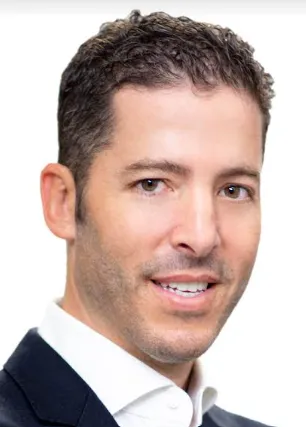
A large part of what we do is marrying those sources of capital that are interested in social impact with deals. There is still a tremendous opportunity to play in that space in which we're looking at market-rate deals, and [we’re] seeing how we can work with certain programs to provide affordability in the most cost-effective manner.
How does this high-interest rate, potentially recessionary environment provide an opportunity for your firm to grow?
We're much better positioned to look for expansion and gain market share in a market downturn. The vast majority of our portfolio is financed with long-term, fixed-rate debt. For our market-rate competitors, typically the life cycle on deals is much shorter, whether it's three to seven years. Usually, they’re going to have deals rolling in different parts of the cycle, and they're going to be dealing with a lot of debt issues on various deals. Now, we don't really have that in our space.
As deals come up, I think we're well-positioned to add equity in those situations where there's less financing available. And I think there are still other financing alternatives. You can't do a completely new set of financing. You're still mainly working with the agencies and a lot of the same lenders. It's just that you're adding additional financing sources that might not be there for market-rate buyers.
Whether it's Amazon, Microsoft or various others, a lot of companies are looking to deploy capital in the affordable housing space. People can bring some of the social impact capital into the deals to help fill the gaps that maybe our market-rate competitors aren't able to do.
Is it just the large tech companies who want to invest in affordable housing?
Some of the private corporations — a lot of them are tech focused — are some of the biggest in the space. We're also seeing a lot of cities and states stepping up in a huge way. We’re a big believer that public-private partnerships are a linchpin in trying to solve a lot of our housing affordability issues.
Click here to sign up to receive multifamily and apartment news like this article in your inbox every weekday



